Sparfloxacin
- CAS NO.:110871-86-8
- Empirical Formula: C19H22F2N4O3
- Molecular Weight: 392.4
- MDL number: MFCD00869619
- EINECS: 629-019-8
- SAFETY DATA SHEET (SDS)
- Update Date: 2024-11-19 23:02:33
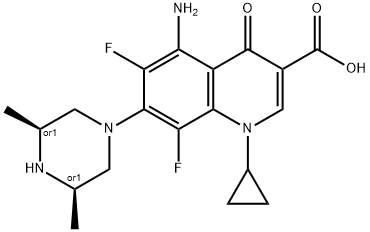
What is Sparfloxacin?
Absorption
Well absorbed following oral administration with an absolute oral bioavailability of 92%. Unaffected by administration with milk or food, however concurrent administration of antacids containing magnesium hydroxide and aluminum hydroxide reduces the oral bioavailability of sparfloxacin by as much as 50%.
Toxicity
Single doses of sparfloxacin were relatively non-toxic via the oral route of administration in mice, rats, and dogs. No deaths occurred within a 14-day post-treatment observation period at the highest oral doses tested, up to 5000 mg/kg in either rodent species, or up to 600 mg/kg in the dog. Clinical signs observed included inactivity in mice and dogs, diarrhea in both rodent species, and vomiting, salivation, and tremors in dogs.
Description
Sparfloxacin is the most potent fluoroquinolone antibiotic introduced for the treatment of community acquired infections. It has superior and broad in vitro activity against members of family Enterobacferiaceae and anaerobic bacteria, some of which are resistant toβ-lactam antibiotics or to aminoglycosides. In patients with surgical infections, sparfloxacin shows excellent activity against resistant pathogens. It is effective in treating patients with bladder irritability and is reported to have potential in the treatment of leprosy and Mycobacterium tuberculosis in mice. Favorable pharmacokinetic properties, good intracellular penetration and a lack of transferable resistance have been reported.
Chemical properties
Light yellow powder
Originator
Dainippon (Japan)
The Uses of Sparfloxacin
A fluorianted quinolone antibacterial
The Uses of Sparfloxacin
antifungal
The Uses of Sparfloxacin
A fluorianted quinolone antibacterial.
Background
Sparfloxacin is a fluoroquinolone antibiotic indicated for bacterial infections. Sparfloxacin exerts its antibacterial activity by inhibiting DNA gyrase, a bacterial topoisomerase. DNA gyrase is an essential enzyme which controls DNA topology and assists in DNA replication, repair, deactivation, and transcription.
Indications
For the treatment of adults with the following infections caused by susceptible strains microorganisms: community-acquired pneumonia (caused by Chlamydia pneumoniae, Haemophilus influenzae, Haemophilus parainfluenzae, Moraxella catarrhalis, Mycoplasma pneumoniae, or Streptococcus pneumoniae) and acute bacterial exacerbations of chronic bronchitis (caused by Chlamydia pneumoniae, Enterobacter cloacae, Haemophilus influenzae, Haemophilus parainfluenzae, Klebsiella pneumoniae, Moraxella catarrhalis, Staphylococcus aureus, or Streptococcus pneumoniae).
What are the applications of Application
Sparfloxacin is a broad spectrum fluoroquinolone antibiotic
Definition
ChEBI: Sparfloxacin is a quinolone, a quinolinemonocarboxylic acid, a N-arylpiperazine, a quinolone antibiotic and a fluoroquinolone antibiotic.
Manufacturing Process
A mixture of the known compound, ethyl pentafluorobenzoylacetate [J. Org.
Chem., 35, 930 (1970)] (25 g), ethyl orthoformate (20 g), and acetic
anhydride (23 g) was refluxed for 2 h. The reaction mixture was evaporated
to dryness under reduced pressure. The residue was dissolved in diethyl ether
and allowed to react with cyclopropylamine (5.1 g) to give ethyl 2-
pentafluorobenzoyl-3-cyclopropylaminoacrylate (28 g), melting point 89°C.
The ethyl 2-pentafluorobenzoyl-3-cyclopropylaminoacrylate (28 g) was
dissolved in dry tetrahydrofuran and allowed to react with 60% sodium
hydride (3.85 g) at room temperature to give ethyl 1-cyclopropyl-5,6,7,8-
tetrafluoro-1,4-dihydro-4-oxoquinoline-3-carboxylate (18.4 g), melting point
170°-171°C.
A mixture of ethyl 1-cyclopropyl-5,6,7,8-tetrafluoro-1,4-dihydro-4-
oxoquinoline-3-carboxylate (28.2 g), benzylamine (9.8 ml), anhydrous
potassium carbonate (23.6 g), and acetonitrile (140 ml) was heated at 100°-
110°C for 1 h to give ethyl 5-benzylamino-1-cyclopropyl-6,7,8-trifluoro-1,4-
dihydro-4-oxoquinoline-3-carboxylate (21.4 g), which was recrystallized from
ethanol, melting point 134°-135°C.
The ethyl 5-benzylamino-1-cyclopropyl-6,7,8-trifluoro-1,4-dihydro-4-
oxoquinoline-3-carboxylate (20 g) was dissolved in acetic acid (100 ml) and
ethanol (150 ml), and hydrogenolyzed in the presence of 5% palladiumcarbon
(0.5 g) to give ethyl 5-amino-1-cyclopropyl-6,7,8-trifluoro-1,4-dihydro-
4-oxoquinoline-3-carboxylate (14.1 g), which was recrystallized from
chloroform-ethanol, melting point 236°-237°C.
A mixture of the ethyl 5-amino-1-cyclopropyl-6,7,8-trifluoro-1,4-dihydro-4-
oxoquinoline-3-carboxylate (12.6 g), acetic acid (80 ml), water (50 ml), and
concentrated sulfuric acid (9 ml) was heated at 100°-110°C for 40 min to give
5-amino-1-cyclopropyl-6,7,8-trifluoro-1,4-dihydro-4-oxoquinoline-3-carboxylic
acid (11.1 g), which was recrystallized from chloroform-ethanol, melting point
294°-295°C.
A mixture of 5-amino-1-cyclopropyl-6,7,8-trifluoro-1,4-dihydro-4-
oxoquinoline-3-carboxylic acid (1.25 g), cis-2,6-dimethylpiperazine (2.0 g),
and dimethylformamide was stirred at room tempersture for 24 h. The
reaction mixture was evaporated to dryness under reduced pressure and
water was added to the residue. The mixture was extracted with chloroform
and the extract was dried. After evaporation of chloroform, ethanol was added
to the residue. The resulting crystals were filtered and recrystallized from
chloroform-ethanol to give 5-amino-1-cyclopropyl-6,8-difluoro-7-(cis-3,5-
dimethyl-1-piperazinyl)-1,4-dihydro- 4-oxoquinoline-3-carboxylic acid (1.4 g),
melting point: 258°-260°C.
brand name
Zagam (Mylan);Spara.
Therapeutic Function
Antibacterial
World Health Organization (WHO)
Sparfloxacin is a quinolone antimicrobial agent. See also under quinolone and fluoroquinolone antimicrobial agents.
Pharmaceutical Applications
It is highly active against most aerobic Grampositive cocci and Gram-negative bacilli, including fastidious Gram-negative bacilli, Acinetobacter spp., Campylobacter spp. and Legionella spp. Ps. aeruginosa is weakly susceptible. Activity also extends to the genital mycoplasmas, M. tuberculosis and M. avium complex isolates. It is moderately active against some anaerobes (including the B. fragilis group); L. monocytogenes is resistant.
It is well absorbed, achieving a plasma concentration of 1–1.5 mg/L 4.5 h after a 400 mg oral dose. Absorption is decreased in the presence of antacids owing to the formation of chelates with metallic ions. Concentrations in many tissues, including lung, exceed those in plasma. The plasma half-life is 15–20 h. CSF penetration is limited. Around 5–10% of a dose is eliminated unchanged in the urine, with about 30% appearing as the glucuronide. Total clearance is 10–15 L/h. The plasma half-life increases only modestly in renal failure to 30–40 h. About 50–60% of the dose appears as unchanged drug in the feces, mainly as the glucuronide, accounting for 10–20% of the administered dose.
Adverse events are those common to fluoroquinolones, in particular gastrointestinal tract disturbances, CNS effects (mainly headache and insomnia) and rashes. Photosensitivity reactions have been observed in 2–11% of patients. It can prolong the QTc interval and cases of torsade de pointes have been reported. It does not potentiate the toxicity of theophylline.
It has been used for respiratory and other infections caused by susceptible bacteria, but use has been restricted in the USA and Europe because of phototoxicity and cardiotoxicity.
Pharmacokinetics
Sparfloxacin is a synthetic fluoroquinolone broad-spectrum antimicrobial agent in the same class as ofloxacin and norfloxacin. Sparfloxacin has in vitro activity against a wide range of gram-negative and gram-positive microorganisms. Sparfloxacin exerts its antibacterial activity by inhibiting DNA gyrase, a bacterial topoisomerase. DNA gyrase is an essential enzyme which controls DNA topology and assists in DNA replication, repair, deactivation, and transcription. Quinolones differ in chemical structure and mode of action from (beta)-lactam antibiotics. Quinolones may, therefore, be active against bacteria resistant to (beta)-lactam antibiotics. Although cross-resistance has been observed between sparfloxacin and other fluoroquinolones, some microorganisms resistant to other fluoroquinolones may be susceptible to sparfloxacin. In vitro tests show that the combination of sparfloxacin and rifampin is antagonistic against Staphylococcus aureus.
Clinical Use
Sparfloxacin, (cis)-5-amino-1-cyclopropyl-7-(3,5-dimethyl)-1-piperazinyl)-6,8-difluoro-1,4-dihydro-4-oxo-3-quinolinecarboxylicacid, is a newer fluoroquinolone.
This compound exhibits higher potency against Grampositivebacteria, especially staphylococci and streptococci,than the fluoroquinolones currently marketed. It is also moreactive against chlamydia and the anaerobe Bacteroides fragilis.The activity of sparfloxacin against Gram-negative bacteriais also very impressive, and it compares favorably withciprofloxacin and ofloxacin in potency against Mycoplasmaspp., Legionella spp., Mycobacteria spp., and Listeria monocytogenes.Sparfloxacin has a long elimination half-life of18 hours, which permits once-a-day dosing for most indications.The drug is widely distributed into most fluidsand tissues. Effective concentrations of sparfloxacin areachieved for the treatment of skin and soft tissue infections,lower respiratory infections (including bronchitis and bacterialpneumonias), and pelvic inflammatory disease causedby gonorrhea and chlamydia. Sparfloxacin has also beenrecommended for the treatment of bacterial gastroenteritisand cholecystitis. The oral bioavailability of sparfloxacinis claimed to be good, and sufficient unchanged drug isexcreted to be effective for the treatment of urinary tract infections.Nearly 20% of an orally administered dose is excretedas an inactive glucuronide.
Metabolism
Hepatic. Metabolized primarily by phase II glucuronidation to form a glucuronide conjugate. Metabolism does not utilize or interfere with the cytochrome P450 enzyme system.
Properties of Sparfloxacin
| Melting point: | 265°C |
| Boiling point: | 640℃ |
| Density | 1.436±0.06 g/cm3(Predicted) |
| Flash point: | >110°(230°F) |
| storage temp. | Keep in dark place,Inert atmosphere,2-8°C |
| solubility | DMF: 10 mg/ml; DMF:PBS(pH 7.2)(1:1): 0.50 mg/ml |
| form | powder |
| pka | pKa1 6.25, pKa2 9.30(at 25℃) |
| color | white to light yellow |
| Water Solubility | Soluble in DMSO at 9mg/ml. Sparingly soluble in water |
| BRN | 9170271 |
| CAS DataBase Reference | 110871-86-8(CAS DataBase Reference) |
Safety information for Sparfloxacin
| Signal word | Warning |
| Pictogram(s) |
 Exclamation Mark Irritant GHS07 |
| GHS Hazard Statements |
H315:Skin corrosion/irritation H319:Serious eye damage/eye irritation H335:Specific target organ toxicity, single exposure;Respiratory tract irritation |
| Precautionary Statement Codes |
P261:Avoid breathing dust/fume/gas/mist/vapours/spray. P264:Wash hands thoroughly after handling. P264:Wash skin thouroughly after handling. P271:Use only outdoors or in a well-ventilated area. P280:Wear protective gloves/protective clothing/eye protection/face protection. P302+P352:IF ON SKIN: wash with plenty of soap and water. P305+P351+P338:IF IN EYES: Rinse cautiously with water for several minutes. Remove contact lenses, if present and easy to do. Continuerinsing. |
Computed Descriptors for Sparfloxacin
Abamectin manufacturer
Integrin Life Sciences. Pvt. Ltd.
Rakshit Group of Companies (Rakshit Drugs Pvt Ltd)
Sreepathi Pharmaceuticals Limited
New Products
4-Aminotetrahydropyran-4-carbonitrile Hydrochloride (R)-3-Aminobutanenitrile Hydrochloride 4-AMINO-TETRAHYDRO-PYRAN-4-CARBOXYLIC ACID HCL 4-(Dimethylamino)tetrahydro-2H-pyran-4-carbonitrile 3-((Dimethylamino)methyl)-5-methylhexan-2-one oxalate 1,4-Dioxa-8-azaspiro[4.5]decane 5-Bromo-2-nitropyridine Nimesulide BP Aceclofenac IP/BP/EP Diclofenac Sodium IP/BP/EP/USP Mefenamic Acid IP/BP/EP/USP Ornidazole IP Diclofenac Potassium SODIUM AAS SOLUTION ZINC AAS SOLUTION BUFFER SOLUTION PH 10.0(BORATE) GOOCH CRUCIBLE SINTERED AQUANIL 5 BERYLLIUM AAS SOLUTION 2-Bromo-1-(bromomethyl)-3-chloro-5-nitrobenzene 2-Bromo-3-nitroaniline N-(3-Hydroxypropyl)-N-methylacetamide 3-Bromo-6-chloropyridazine 4-ethyl-3-nitrobenzoic acidRelated products of tetrahydrofuran
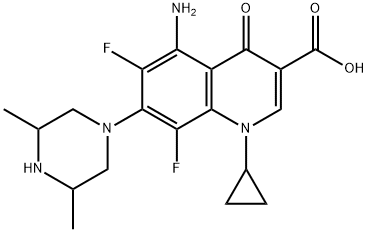
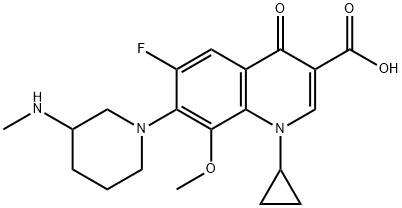
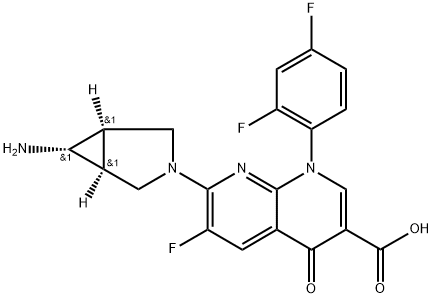
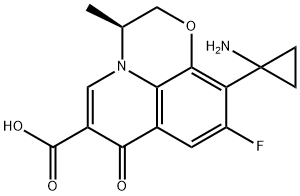
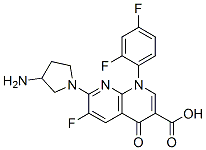
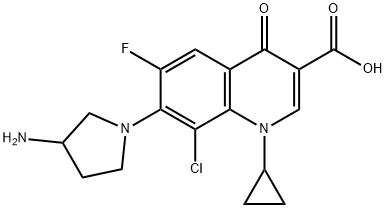

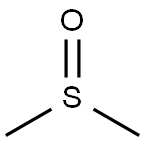
You may like
-
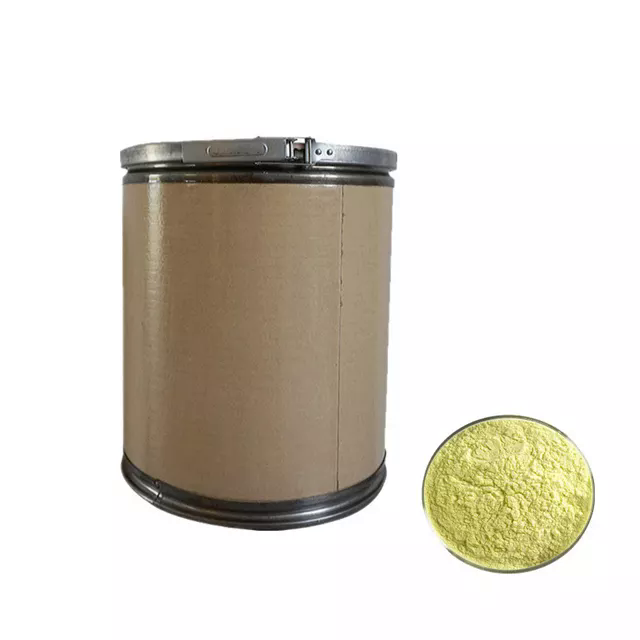 110871-86-8 Sparfloxacin 99%View Details
110871-86-8 Sparfloxacin 99%View Details
110871-86-8 -
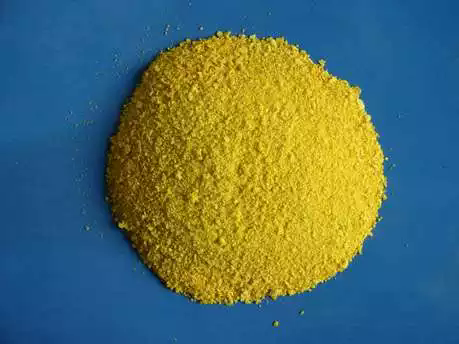 110871-86-8 99%View Details
110871-86-8 99%View Details
110871-86-8 -
 Sparfloxacin 95.00% CAS 110871-86-8View Details
Sparfloxacin 95.00% CAS 110871-86-8View Details
110871-86-8 -
 Sparfloxacin 99%View Details
Sparfloxacin 99%View Details
110871-86-8 -
 Sparfloxacin 110871-86-8 98%View Details
Sparfloxacin 110871-86-8 98%View Details
110871-86-8 -
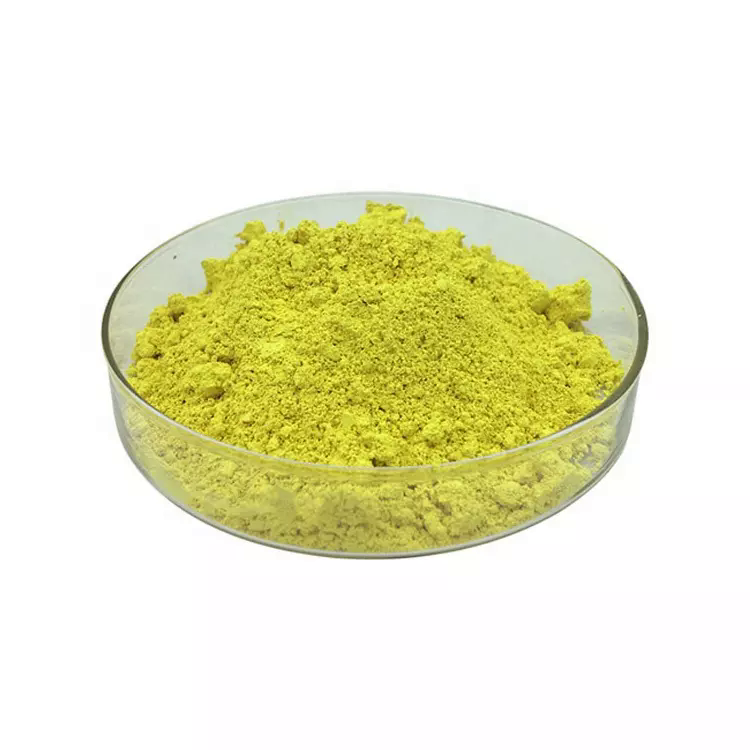 Sparfloxacin 98%View Details
Sparfloxacin 98%View Details
110871-86-8 -
 Sparfloxacin >98% (HPLC) CAS 110871-86-8View Details
Sparfloxacin >98% (HPLC) CAS 110871-86-8View Details
110871-86-8 -
 Sparfloxacin CAS 110871-86-8View Details
Sparfloxacin CAS 110871-86-8View Details
110871-86-8